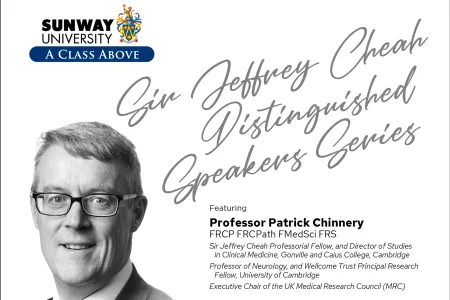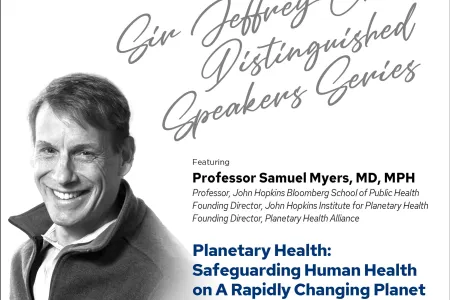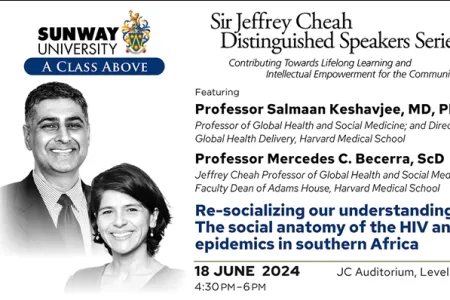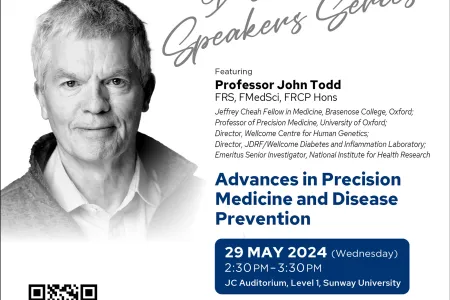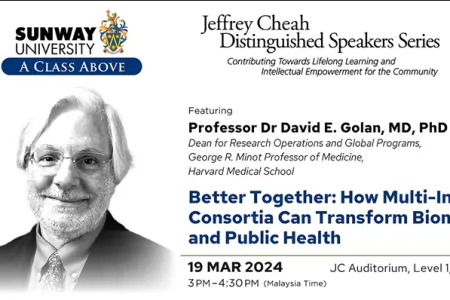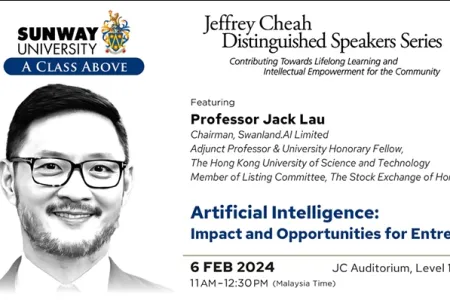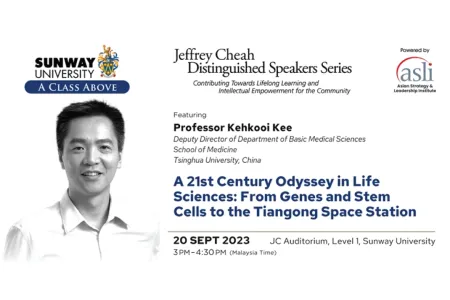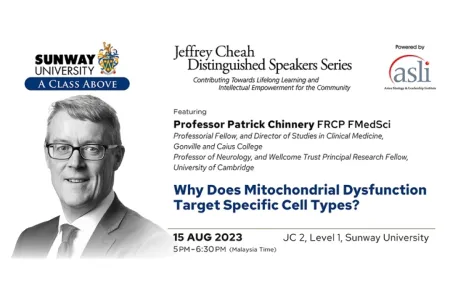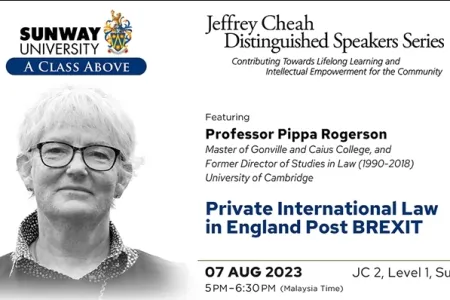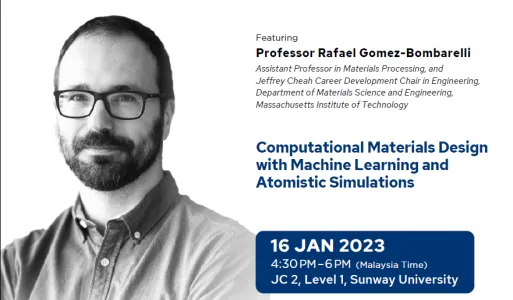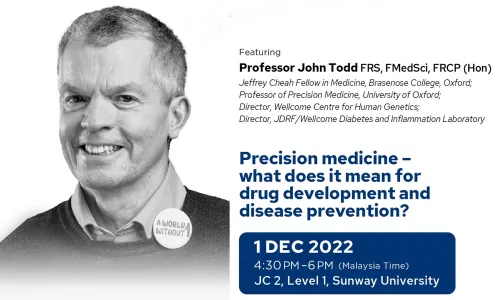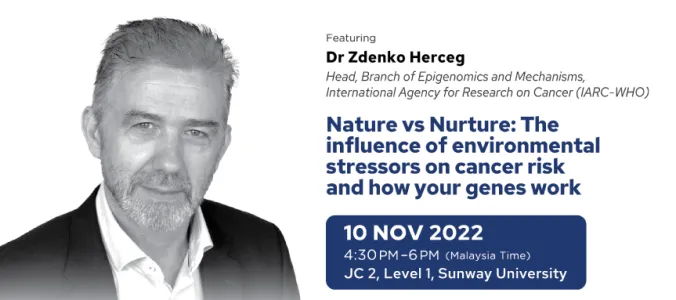03:00 pm - 04:30 pm
The UK Medical Research Council – Past, Present and Future
Since 1913, the UK Medical Research Council (MRC) has driven global medical breakthroughs, including DNA structure, monoclonal antibodies, and MRI, earning 32 Nobel prizes.
05:00 pm - 06:00 pm
Planetary Health: Safeguarding Human Health on A Rapidly Changing Planet
This lecture discusses the current state of Planetary Health, where human development indicators are improving while natural life support systems are eroding.
04:30 pm - 06:00 pm
Re-socializing Our Understanding of Disease: The Social Anatomy of the HIV and TB Epidemics in Southern Africa
Sir Jeffrey Cheah Distinguished Speakers Series: Re-socializing our understanding of disease: The social anatomy of the HIV and TB epidemics in southern Africa by Professor Keshavjee and Professor Becerra.
03:00 pm - 04:30 pm
Better Together: How Multi-Institutional Consortia Can Transform Biomedicine and Public Health
The traditional model for biomedical discovery funded by a single government agency or foundation has served us well for many decades but it is not equipped to address the big global challenges we face.
11:00 am - 12:30 pm
Artificial Intelligence: Impact and Opportunities for Entrepreneurship
While artificial intelligence has been developed for some time, it was the remarkable breakthrough and the availability to mass usage that has aroused the interests of many people, including individuals, industries and government entities.
03:00 pm - 04:30 pm
A 21st Century Odyssey in Life Sciences: From Genes and Stem Cells to the Tiangong Space Station
In this lecture, Professor Kee will share his illustrious and exciting journey in his 30 years of learning and studying life sciences.
05:00 pm - 06:30 pm
Why Does Mitochondrial Dysfunction Target Specific Cell Types?
Mitochondrial dysfunction is seen in many common and rare diseases, but given their central role in cell homeostasis, it remains puzzling why this targets some cell-types and not others.
05:00 pm - 06:30 pm


